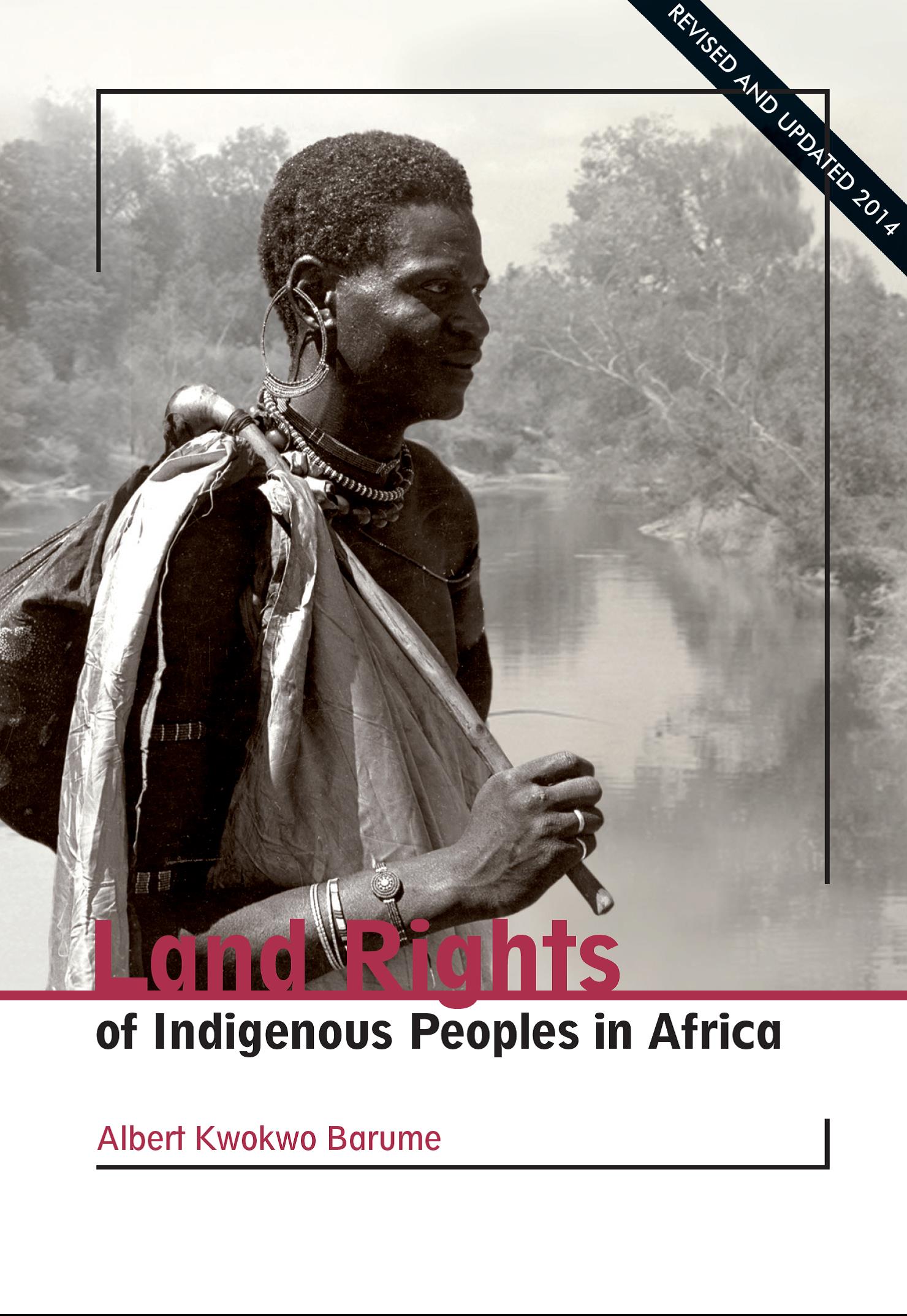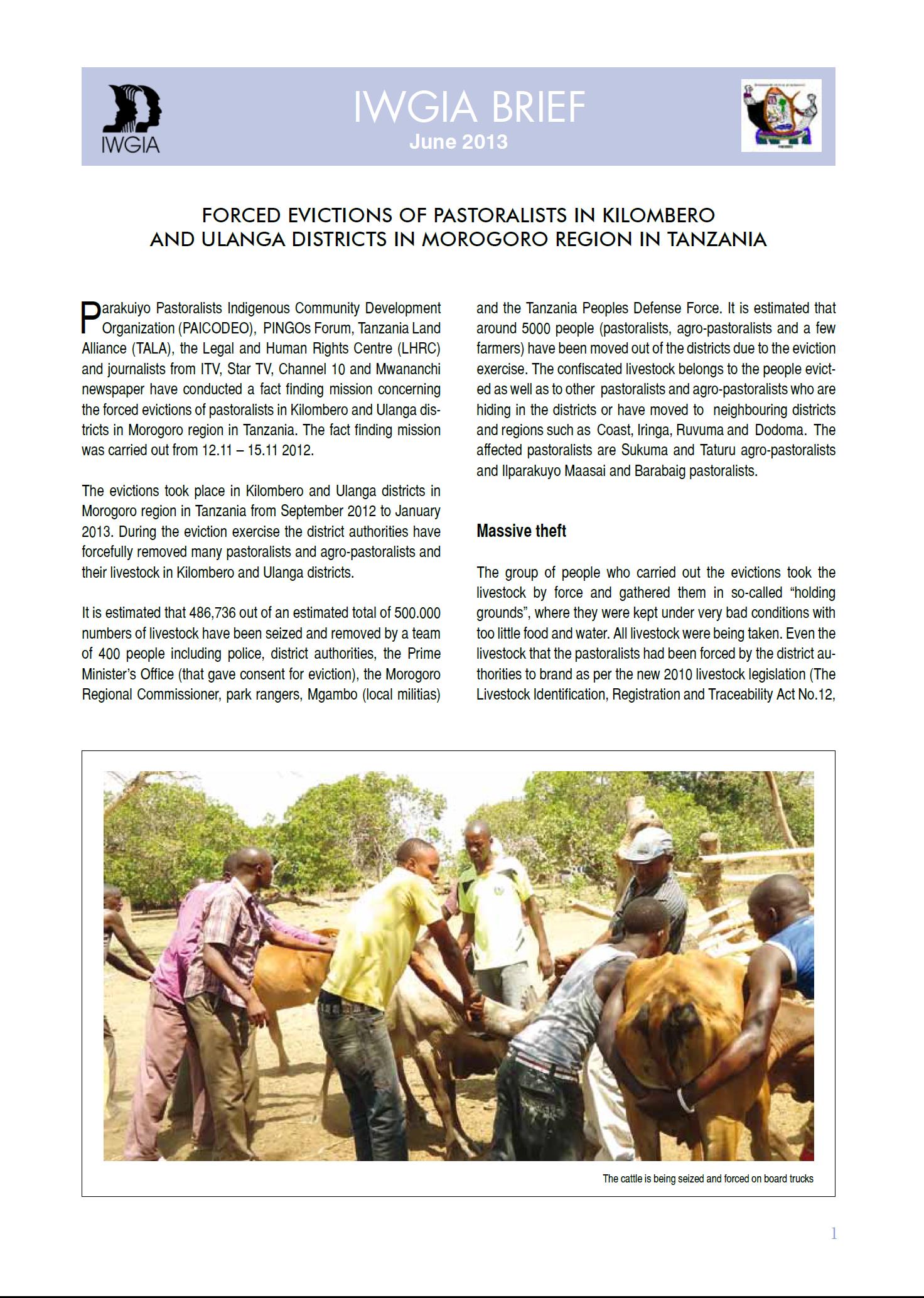Focal point
Location
IWGIA is a non-governmental human rights organisation promoting and defending Indigenous Peoples’ collective and individual rights.
We have supported our partners in this fight for more than 50 years.
We work through a global network of Indigenous Peoples’ organisations and international human rights bodies.
We promote recognition, respect and implementation of Indigenous Peoples’ rights, including the right to self-determination by virtue of which they can freely determine their political status and freely pursue their economic, social and cultural development.
Visit our website for more information and to access all our publications, including our flagship annual book The Indigenous World, a yearly overview of the state of the rights of Indigenous Peoples across individual countries and through various international mechanisms and processes.
Resources
Displaying 36 - 40 of 59Shifting Cultivation, Livelihood and Food Security: New and Old Challenges for Indigenous Peoples in Asia
This briefing note presents the findings of seven case studies conducted from May to June 2014. The studies were conducted in Bangladesh, Cambodia, India, Indonesia, Laos, Nepal and Thailand and looked into the livelihood and food security among indigenous shifting cultivation communities in South and Southeast Asia. The briefing note provides a summary of the main findings of the case studies and the common recommendations from a multi-stakeholders consultation held August 28-29 in Chiang Mai, Thailand.
Land Rights of Indigenous Peoples in Africa
This revised and updated edition of Albert Kwokwo Barume’s book from 2010 reflects some of the latest developments affecting Africa’s indigenous peoples and their land rights.
The capacity of local communities to monitor biodiversity and resources in Madagascar, Nicaragua, Philippines and Tanzania
This case study focuses on the capacity of local communities to monitor biodiversity and resources in Madagascar, Nicaragua, Philippines and Tanzania. It makes a controlled comparison between local community monitoring and trained scientists’ monitoring and conclude that local and indigenous communities generate similar and equally good outputs as the trained scientists, and are much more cost efficient. The cases suggest that it is fully possible to build a cheap and effective MRV system based on community monitoring of Non-Carbon Benefits
Forced Evictions of Pastoralists in Kilombero and Ulanga Disticts in Mgorogoro Region in Tanzania
Parakuiyo Pastoralists Indigenous Community Development Organization (PAICODEO), PINGOs Forum, Tanzania Land Alliance (TALA), the Legal and Human Rights Centre (LHRC) and journalists from ITV, Star TV, Channel 10 and Mwananchi newspaper have conducted a fact finding mission concerning the forced evictions of pastoralists in Kilombero and Ulanga districts in Morogoro region in Tanzania. The fact finding mission was carried out from 12.11 – 15.11 2012.
Forced Evictions of Pastoralists in Kilombero and Ulanga Disticts in Mgorogoro Region in Tanzania
Parakuiyo Pastoralists Indigenous Community Development Organization (PAICODEO), PINGOs Forum, Tanzania Land Alliance (TALA), the Legal and Human Rights Centre (LHRC) and journalists from ITV, Star TV, Channel 10 and Mwananchi newspaper have conducted a fact finding mission concerning the forced evictions of pastoralists in Kilombero and Ulanga districts in Morogoro region in Tanzania. The fact finding mission was carried out from 12.11 – 15.11 2012.






